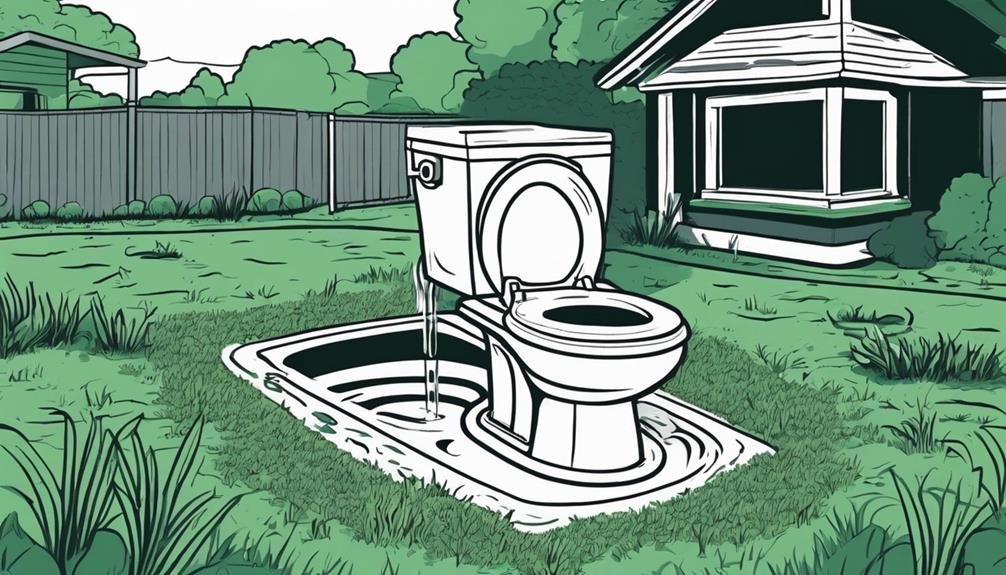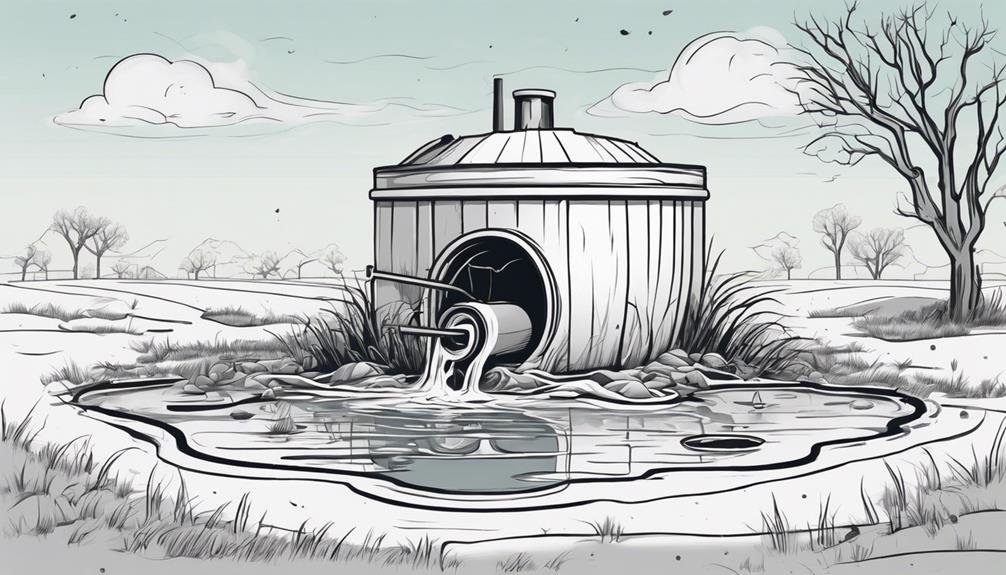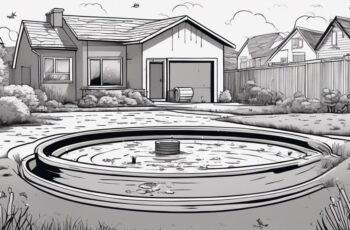If you've ever wondered why your septic tank seems to be more blocked than a rush-hour traffic jam, you're not alone. The frustration of dealing with backups and foul odors can be overwhelming.
But before you start digging up your yard in despair, there are some essential insights you need to uncover. Understanding the root causes of a clogged septic tank can save you time, money, and a major headache.
Key Takeaways
- Regular maintenance prevents blockages and costly repairs.
- Slow drainage and foul odors signal potential issues.
- Avoid flushing non-biodegradable items to maintain system health.
- Environmental impact underscores the importance of prompt action.
Common Signs of a Full Septic Tank

If you notice slow drainage in your sinks and toilets, it could be a common sign of a full septic tank. Preventative maintenance is key to avoiding this issue. Regularly pumping out the septic tank, typically every three to five years, is crucial. Overloading the tank with excessive water usage can lead to blockages and backups.
Proper disposal of waste is equally important. Avoid flushing non-biodegradable items like wipes, sanitary products, or oils down the drain. These items can accumulate in the tank, causing clogs and reducing its efficiency.
To maintain a healthy septic system, monitor water usage, fix leaks promptly, and spread out laundry loads instead of doing them all at once. Implementing a good maintenance routine can prevent costly repairs and extend the lifespan of your septic tank. By being mindful of what goes down your drains and scheduling regular pump-outs, you can ensure the smooth operation of your septic system.
Early Indicators of a Failing System
Early indicators of a failing septic system include foul odors emanating from your drains and soggy patches in your yard above the drain field. If you notice these signs, it's crucial to address them promptly to prevent a complete system failure.
To avoid such issues, regular maintenance is key. Ensure that your septic tank is pumped out every 3-5 years, depending on usage, to prevent buildup that can lead to system failure. Additionally, avoid flushing non-biodegradable items down the drain and be mindful of what chemicals you introduce into your system to maintain its health.
When a septic system fails, it can have detrimental environmental impacts. Leaking sewage from a malfunctioning system can contaminate groundwater, leading to potential health hazards for you and your community. By staying proactive with maintenance and promptly addressing any signs of a failing system, you not only prevent costly repairs but also contribute to a healthier environment for all.
Red Flags of a Blockage

To identify a potential blockage in your septic system, watch out for slow drainage in sinks and toilets, gurgling noises from pipes, and sewage backups in your home. These red flags could indicate underlying issues such as root infiltration or grease accumulation. Here are four key signs to look out for:
- Slow Drainage: If you notice water taking longer than usual to drain from your sinks, showers, or toilets, it could be a sign of a blockage in your septic system.
- Gurgling Noises: Unusual gurgling sounds coming from your pipes when you flush the toilet or drain water may suggest air pockets due to a possible blockage.
- Sewage Backups: The most alarming sign of a blockage is sewage backing up into your sinks, toilets, or showers. This indicates a severe obstruction in your septic system that needs immediate attention.
- Foul Odors: If you detect unpleasant odors around your property, especially near the drain field, it could be a result of a blockage causing sewage to accumulate.
Being vigilant about these warning signs can help you address septic tank blockages before they escalate into costly and extensive problems.
Warning Signals You Shouldn't Ignore
Don't overlook the warning signals that could indicate a potential septic tank blockage. Regular septic tank maintenance is crucial to avoid costly repairs. One warning sign is slow drainage in sinks, showers, or toilets. If you notice gurgling sounds when flushing or draining water, it might indicate an issue in the septic system. Foul odors near the drain field or septic tank are also red flags that shouldn't be ignored. Additionally, pooling water or lush green grass over the drain field could signal a problem with the septic system.
To prevent blockages, consider implementing drainage solutions such as reducing water usage, avoiding flushing non-biodegradable items, and scheduling regular septic tank inspections. Installing a lint filter on your washing machine can help prevent lint accumulation in the septic system. Proper waste disposal practices are essential to maintaining a healthy septic tank. Remember, addressing warning signals promptly and investing in preventative measures can save you from major septic tank issues in the future.
Conclusion
In conclusion, if you notice any common signs of a full septic tank, early indicators of a failing system, or red flags of a blockage, it's crucial to address the issue promptly. Ignoring warning signals could lead to costly repairs or even system failure.
By staying vigilant and addressing any issues promptly, you can prevent blockages and maintain the functionality of your septic tank system. Remember, prevention is key to avoiding costly repairs in the future.

